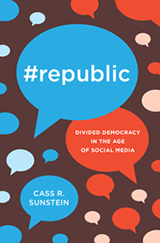This is an insight written by Stella Hudson on the recent Bahá’í Chair for World Peace Lecture by Dr. Olivia Rutazibwa on “Dignity, Repair & Retreat: reflections on anticolonial and anti-racist solidarity” held on April 5, 2022.
In her talk “Dignity, Repair & Retreat: reflections on anticolonial and anti-racist solidarity” Dr. Olivia Umurerwa Rutazibwa, touches on the many ways that our history of colonialism has shaped our current ways of thinking and epistemic paradigms. So much of how we create and value information and knowledge is centered around western and white ways of thinking. Further, people from marginalized regions and identities, non-white, non-western voices are often actively censored. Acknowledging this unequal framework that upholds much of our intellectual, imagined, and academic spaces can be difficult, as we are steeped in this ideology at every level of development.


